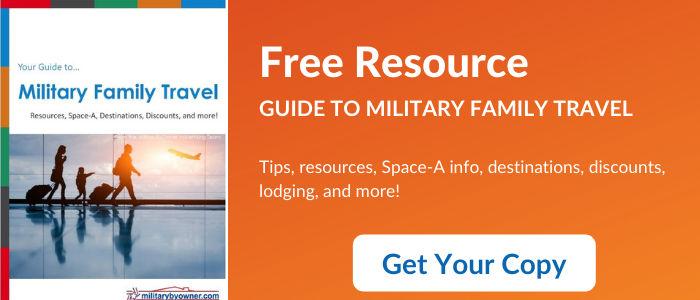What Are the Costs of Owning an RV?
Is RV living part of your military retirement dream? Or maybe you're a travel enthusiast and the seeming affordability of RV travel is appealing.
If you’re ready to hit the open road with your own RV and feel the wind in your hair, read on!
RV Basics
The average cost of an RV (Recreational Vehicle) is top of mind for those seeking an adventure on the road, particularly post-military. But the term "RV" is an umbrella term, with several options. Cost varies considerably, and depends on individual preferences, travel needs, and the type of experience travelers are seeking.
RVs typically fall into one of the following categories:
| Class | Estimated Price |
| Pop-up Campers | $6,000 - $20,000 |
| Fifth Wheels and Travel Trailers | $15,000 - $50,000 |
| Class B Motorhomes | $20,000 - $75,000 |
| Class C Motorhomes | $35,000 - $80,000 |
| Class A Motorhomes | $50,000 - $100,000+ |
Pop-up Campers
Length Range: 8 to 20 feet (when closed)
Pop-up campers offer an economical starting point, both in price point and tow, as many vehicles can safely tow pop-ups when outfitted with the proper hitch and are within weight capacity.
Compact and lightweight, pop-ups expand into a more spacious living area when set up, at least one sleeping area, with some offering small dining and kitchenettes. Pop-ups may have a small portable toilet, but usually rely on shared campground facilities for restroom access.
Fifth Wheels and Travel Trailers
Length Range: Travel Trailers - 10 to 40 feet, Fifth Wheels - 20 to 45 feet
Both travel trailers and fifth wheels are towed by a separate vehicle, and their lengths can vary significantly. Smaller travel trailers are suitable for smaller tow vehicles, whereas fifth wheel trailers are towed by pickup trucks with a specialized hitch and often have multiple levels, providing a more residential feel.
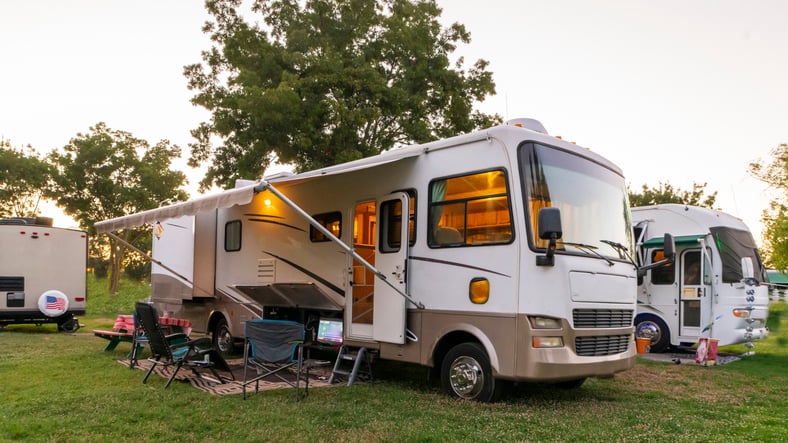 Photo from iStock.com/Larry Crain
Photo from iStock.com/Larry Crain
Class B, C, and A Motorhomes
Class B Motorhomes (Campervans):
Length Range: 16 to 22 feet
Class B RVs are compact, built on a van chassis and easy to drive and maneuver, making them suitable for solo travelers or small groups. Class B does have a limited tow capacity, and while they may be suitable for “toys,” such as ATVs, bikes, or motorcycles, they may not have enough capacity to tow vehicles.
Class C Motorhomes:
Length Range: 20 to 32 feet
Class C motorhomes feature the characteristic “cab-over bunk” and are often chosen by those who want a balance between size, amenities, and site access. Class C motorhomes often feature more robust amenities than Class B, including a larger kitchen, a bathroom with a shower, and additional storage.
Some models include slide-outs to expand the living space when parked. Class C RVs usually have a higher towing capacity compared to Class B, allowing them to tow a car or other recreational equipment, and strike a balance between size and maneuverability. They are suitable for families or those who want more space than a Class B but still prefer a vehicle that is not as large and challenging to drive as a Class A.
Class A Motorhomes:
Length Range: 25 to 45 feet
Class A motorhomes are the largest RVs and provide a spacious and luxurious living space. They are most popular among full-time RVers and those seeking the highest level of travel comfort. This comfort does come with the highest price point, and it’s important to note there may be travel and site restrictions due to size and maneuverability.
See 5 Top-Rated Military RV Parks Across the U.S.
Financing an RV
Excluding a Class A motorhome, a seven-year financing term tends to be standard for most lending institutions.
However, if you are looking to full-time RV with the vehicle serving as your primary residence, or looking for a higher cost Class A rig, there are 20-year financing terms available, albeit with more stringent lending requirements in addition to heftier down payments.
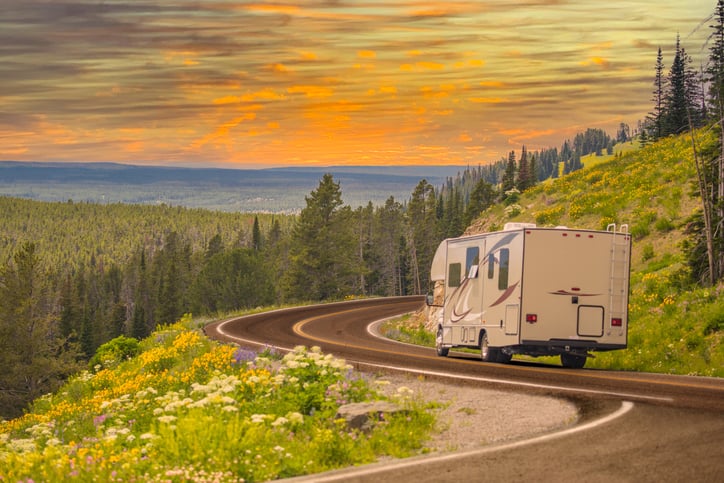 Photo from iStock.com/Feverpitched
Photo from iStock.com/Feverpitched
RV Travel Costs and Considerations
In addition to the cost of obtaining an RV, RV parks and sites range from rustic dry camping to campgrounds that summon major resort vibes. Consider your wish list in evaluating a potential site, as varying amenities packages and services desired will affect site fees.
Amenity Considerations
- Full, partial, or no hookups
- RV length restrictions (some parks, particularly national parks, often restrict RV length due to limited space, road and turn radius, narrow passages, or older infrastructure)
- Concrete or gravel pads, patios, picnic tables, and grills
- Restroom and shower facilities
- Laundry facilities
- Pets allowed
- On-site car and RV wash
- Wi-Fi
- Grocery/sundries store, on-site fuel
- Lounges, lobbies, on-site pools, tours, activities packages (such as kayaking, horseback riding, crafts, and more)
Site Specs: Full Hook-Up, Partial, or No Hook-Up
As well as amenities offered, RV parks come in a mix of full, partial, and no hook-up sites, allowing RVers to choose based on their requirements, comfort preferences, and budget.
Costs for these sites range from $20/night to $500+/month.
Full Hook-Up
Full hook-up sites provide the most convenience and amenities, making them ideal for longer stays and those who want all the comforts of home.
- Electricity: Full hook-up sites provide electrical hookups, which typically includes 30- or 50-amp service, allowing you to power all of your RV's appliances and devices.
- Water and sewer: These sites also offer a water hookup, allowing you to connect your RV's plumbing system to a clean water source, and dump stations for wastewater and holding tanks.
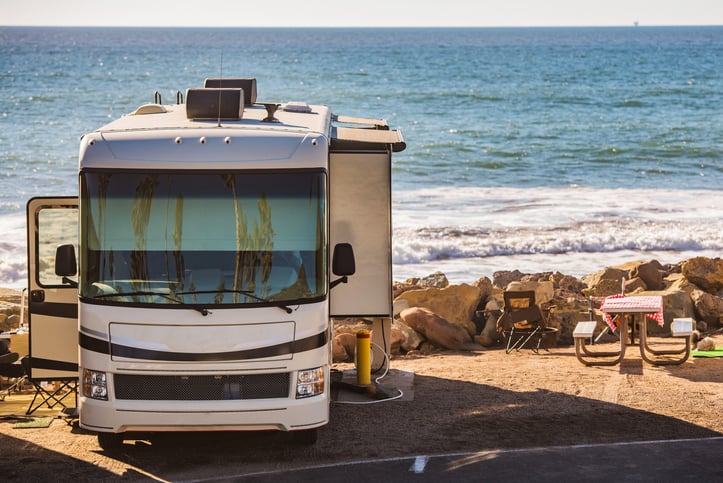 Photo from iStock.com/welcomia
Photo from iStock.com/welcomia
Partial Hook-Up
Partial hook-up sites offer a middle ground between full hook-up and no hook-up sites. They are suitable for RVers who want some amenities, but may not need all of them.
- Electricity: Partial hook-up sites usually offer electrical hookups for RVs.
- Water or sewer: Partial sites may only provide either a water hookup or a sewer hookup, not both. In some cases, you may find partial sites with both water and sewer, but without electrical hookups.
No Hook-Up
No hook-up sites are often chosen by those who prefer a more primitive camping experience or want to save on campground fees.
- No services, to include electrical, water, or sewer connections.
- Dry Camping/Boondocking: No hook-up sites are also referred to as dry camping or boondocking sites. RVers relying on these sites need to be self-sufficient with their water supply, power (using generators or solar), and waste management.
Are outdoor adventures part of your travel plans? Explore The Best U.S. Military Bases for Outdoor Enthusiasts.
Additional RV Ownership Costs
Part vehicle, part living quarters, RVs do have a number of additional costs.
Insurance for Your RV
RV insurance can range from $500 to $1,000+ annually.
Age, RV class, value, your driving record and RV driving experience, coverage options (liability, collision, comprehensive, and deductible), along with the location where you store or use your RV influence insurance costs. In locales with higher risks of accidents, theft, or natural disasters, RV insurance will be costlier.
Lot Fees, Storage, Utilities ($20/night to $500+/month)
For recreational and vacation travelers, a site fee is often quoted as a daily or weekly rate that usually includes utilities. Those looking to RV full-time typically have a combined lot fee plus utilities, and average $400 to $500 per month.
If you will not be storing your RV at a home residence, you’ll need to research storage options for when it's not in use. Remember, some homeowners associations may also prohibit RV storage in your driveway or street parking.
Tow Capacity
Depending on the class of RV, you may need to purchase an additional vehicle to tow it, if you do not already own a truck with enough tow capacity.
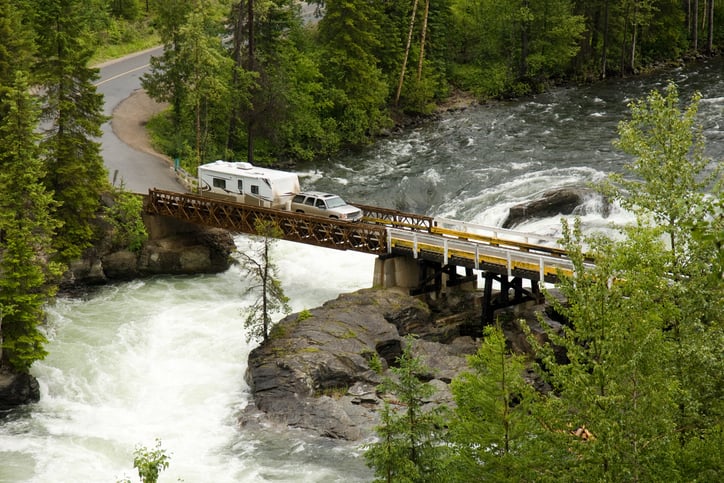 Photo from iStock.com/eppicphotography
Photo from iStock.com/eppicphotography
Renting Out Your RV
If you don’t use your RV frequently, renting it out can provide a source of additional income (typically$100 - $200+/night). This can help offset the costs of ownership, but there are a number of considerations.
Insurance and Liability
Ensure that your insurance policy covers rentals and understand the liability implications, particularly in the event of an accident or total loss. Determine whether you want to offer your RV to drive (and list on a site such as RVbyMilitary, Turo, or RVezy) or as a home rental, such as Airbnb—which requires the RV to be parked in a stationary location.
Maintenance Wear and Tear
Renting out your RV may lead to increased wear-and-tear and accelerated depreciation due to increased usage. Regular maintenance and thorough checks before and after each rental are essential to keep the RV in good condition.
Legal and Regulatory Compliance
Research local laws and regulations. Some areas have specific requirements or restrictions, particularly if you intend to frequently rent out your RV, such as licensure for a short-term rental, a business license for income, or occupancy tax. Department of Motor Vehicles (DMV) and Department of Transportation (DOT) are good starting points.
Screening Renters
Carefully screen potential renters to ensure they have a good driving record, adequate insurance coverage, have a vehicle with the capacity to tow, and experience operating an RV.
RVs offer the perfect blend of outdoor adventure and scenic exploration that will leave you dreaming for your next road trip. And you won’t want to miss MilitaryByOwner’s free guide to military travel!
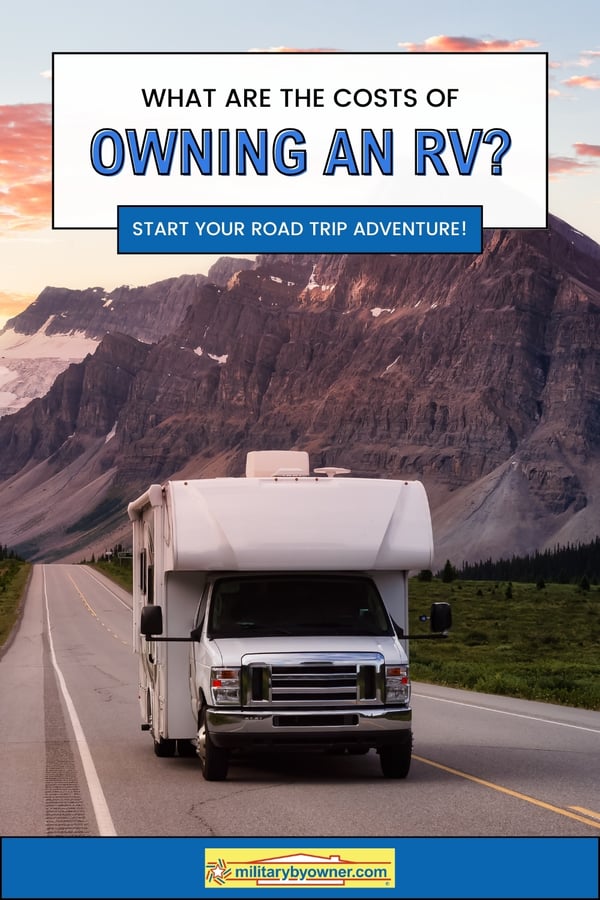

.jpg)
